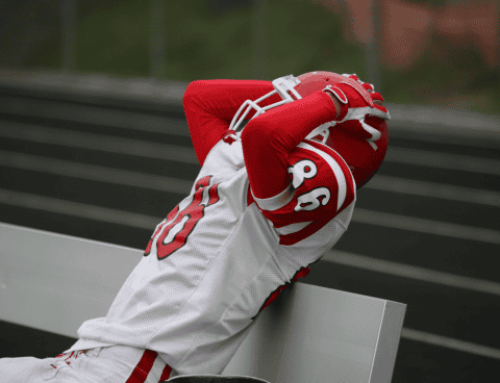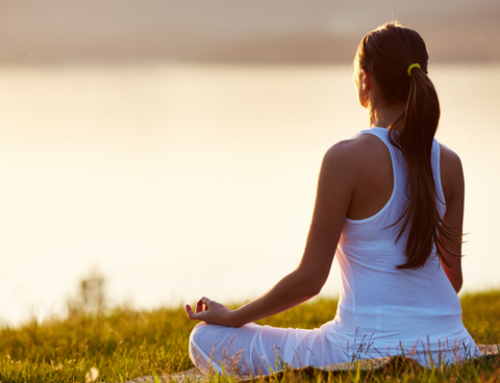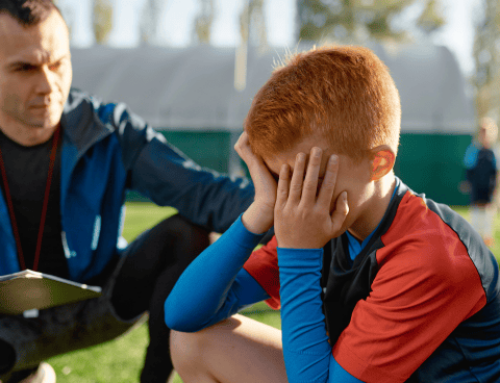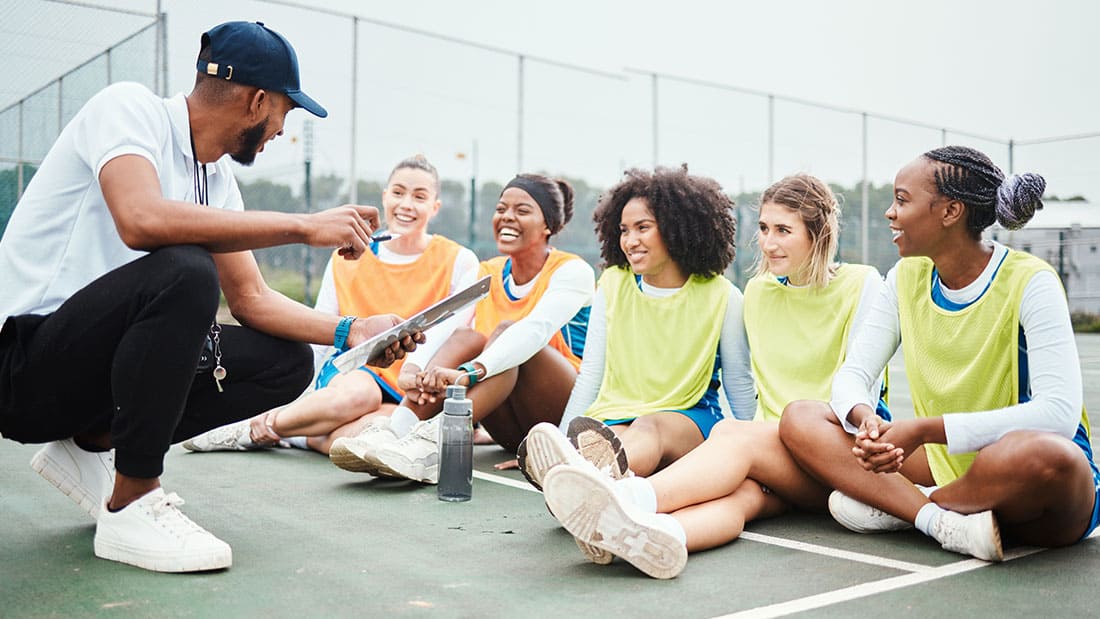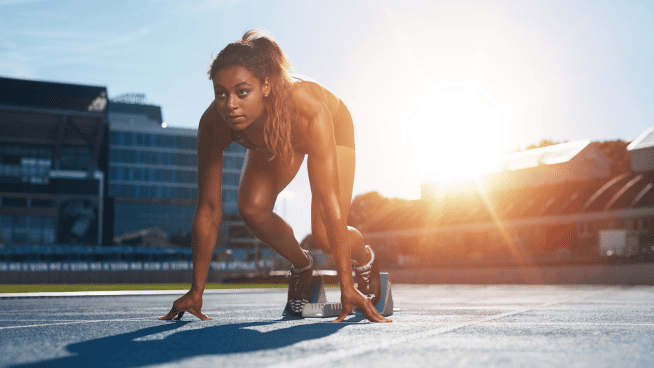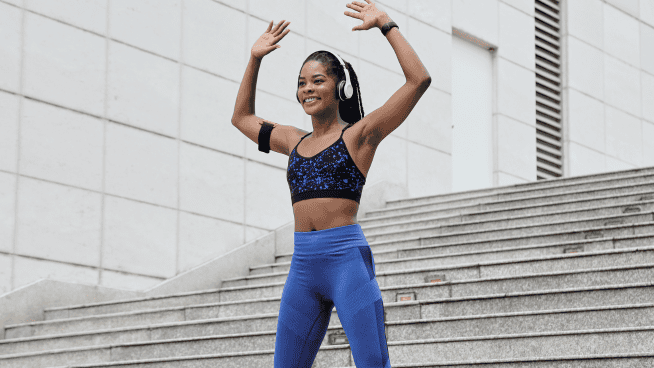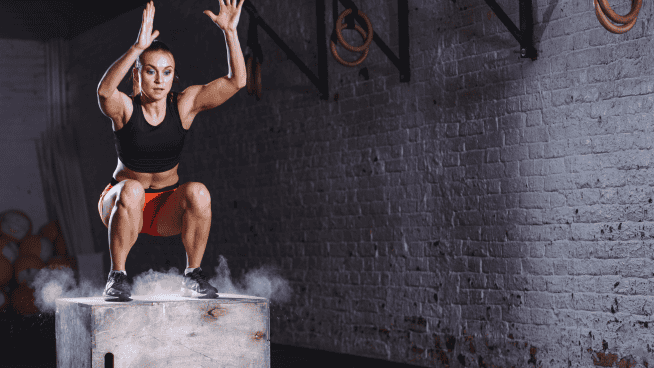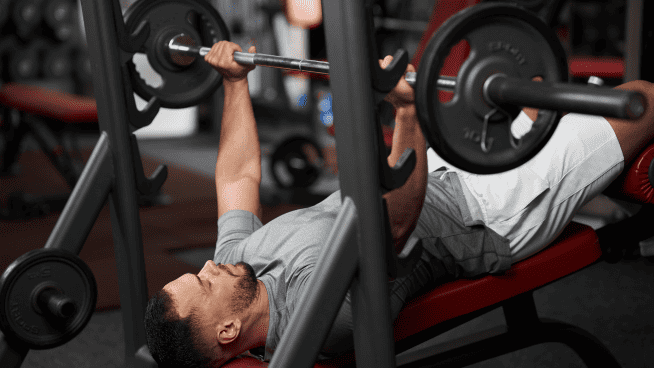Adopt a Back to School Mindset
All over the country, student-athletes are facing the back half of summer vacation. Before they know it, back-to-school ads and sales will be all they see when they walk into stores or surf the web. Late nights, sleeping in, carefree afternoons, and no homework will be wrapping up, and they will be getting supply lists, teacher assignments, and maybe even a parking pass. Students and specifically student-athletes will need to give some thought to this transition before the first day of school, or they may risk failing in the classroom, falling behind teammates, and even an increased chance of injury.
The Summer Brian
The mental transition from summer to school can be challenging. Some teachers and coaches have dubbed what students start the school year with as “Summer Brain.” Summer Brain can best be described as the struggle a student faces from a summer of very little academic work paired with more flexibility than when sitting in the classroom with more specific ideas of how to spend time becomes a reality.
Over the summer, students usually did not listen to complex academic lessons or sit and complete 30 pre-calculus problems for homework. Many students may take the first two or three weeks to bring their best academic focus to class and not let their minds wander off every time the teacher pauses. The good news is that students can get ahead of Summer Brain and potentially give themselves an advantage in the first few weeks of school compared to those just winging it.
Sleep Deprivation
The research on sleep deprivation is comprehensive and consistent. Failure to sleep enough hours a night hurts the body and the brain. The National Sleep Foundation estimates that 85% of teenagers graduate high school with a significant sleep debt. Meaning they are not getting enough sleep through high school. This lack of sleep can magnify focus difficulties and increase the chances of injury.
Many students will start the school year going to bed the same time they did all summer, very late but not sleep in as they did through the summer. They start the school year with sleep debt and may never catch up. When sleep-deprived, your brain finds it harder to pay attention for anything longer than ten minutes or less. Your memory systems are not working like they should be able to and are prone to forgetting.
The good news is that there is an easy cure. Two weeks before school starts, student-athletes should start mimicking a sleep pattern similar to what school will bring. Some may want to make a gradual transition through the two weeks, while others may jump in with both feet to a school sleep schedule. Starting school rested can give you a leg up compared to those yawning through their first weeks of school. It is also important to mention that muscle recovery and growth are mostly done while sleeping. Missing out on your sleep can regress training progress and even lead to injury.

Shifting Attention
The other part of Summer Brain is the transition from you picking what you pay attention to, like Shark Week, versus having to sit in a classroom and not change the channel or fast forward through parts of it. Most academic classrooms do not behave like Tik-Toc. Sometimes you must pay attention and grind out some learning.
If you have not been reading or spent some time doing a summer learning session, you may struggle with paying attention long enough to learn. Put, you just are not ready to learn. You are out of practice for school. Sitting down and paying attention to anything but your phone is out of your normal behavior and a struggle. You may even find that you are distracted by every vibration from every message or notification you are getting. You will have to rediscover your school habits. This can also be fixed with a bit of pre-school work. In the weeks leading up to the first day of school, start reading a book of your choice (or create that summer assignment you have been putting off). Spend a little time looking at the subjects you have coming up. Get your brain moving in a school direction. Start using the areas of your brain that have been dormant for the last two months and get them warmed up.
Keep An Open Mind
The last thing you can do that might give you a better start to the school year is to keep an open mind. So many students and student-athletes see the end of summer and the start of school as a complete disaster. They spend the last few weeks of summer dreading it and may very competently knowingly procrastinate on everything highlighted here, hoping it will go away. They will not get their school supplies until the weekend after school because they are actively resisting the whole process.
View the new year as a great chance to start over from last year. Many students look back on their previous year, knowing what they did wrong. They fell behind on the reading, procrastinated on assignments, and generally made things harder for themselves. Use the start of the school year as an opportunity. Start organized and ready to go. Get and use a planner (Students that have and use planners consistently outperform those that do not). This is more than just for the classroom. Start those good habits for practice or conditioning. Get there early, be ready, and stay on task. Get into the habit of packing your practice bag (and school bag) the night before during the summer when mistakes and relapses do not wreck your day like they might during the school year. It is up to you to make the changes needed. Look at your goals for the year like a higher G.P.A., increased S.A.T. score, or make the all-conference. Take an honest look at your goals and be sure your goals and your actions are on the same page. If you have high goals, you should have equal actions.
There is a clear advantage to getting your body and brain geared up for school a couple of weeks before the first day. It is not an accident that many fall sports have already started conditioning or the marching band is having them camp the weeks leading up to school. Coaches know they need you already into the system before the stress from the start of the school year creates wholesale changes.
Do not make the mistake many students make and think that something magical is going to happen on the first day of school, and all those new habits you want to begin will just work with no practice. The odds are stack against you if you try to start it all on day one, and more likely you will revert to those bad habits that tripped you up last year. Practice good habits early and often so they are ready to go on day one.
RECOMMENDED FOR YOU
Adopt a Back to School Mindset
All over the country, student-athletes are facing the back half of summer vacation. Before they know it, back-to-school ads and sales will be all they see when they walk into stores or surf the web. Late nights, sleeping in, carefree afternoons, and no homework will be wrapping up, and they will be getting supply lists, teacher assignments, and maybe even a parking pass. Students and specifically student-athletes will need to give some thought to this transition before the first day of school, or they may risk failing in the classroom, falling behind teammates, and even an increased chance of injury.
The Summer Brian
The mental transition from summer to school can be challenging. Some teachers and coaches have dubbed what students start the school year with as “Summer Brain.” Summer Brain can best be described as the struggle a student faces from a summer of very little academic work paired with more flexibility than when sitting in the classroom with more specific ideas of how to spend time becomes a reality.
Over the summer, students usually did not listen to complex academic lessons or sit and complete 30 pre-calculus problems for homework. Many students may take the first two or three weeks to bring their best academic focus to class and not let their minds wander off every time the teacher pauses. The good news is that students can get ahead of Summer Brain and potentially give themselves an advantage in the first few weeks of school compared to those just winging it.
Sleep Deprivation
The research on sleep deprivation is comprehensive and consistent. Failure to sleep enough hours a night hurts the body and the brain. The National Sleep Foundation estimates that 85% of teenagers graduate high school with a significant sleep debt. Meaning they are not getting enough sleep through high school. This lack of sleep can magnify focus difficulties and increase the chances of injury.
Many students will start the school year going to bed the same time they did all summer, very late but not sleep in as they did through the summer. They start the school year with sleep debt and may never catch up. When sleep-deprived, your brain finds it harder to pay attention for anything longer than ten minutes or less. Your memory systems are not working like they should be able to and are prone to forgetting.
The good news is that there is an easy cure. Two weeks before school starts, student-athletes should start mimicking a sleep pattern similar to what school will bring. Some may want to make a gradual transition through the two weeks, while others may jump in with both feet to a school sleep schedule. Starting school rested can give you a leg up compared to those yawning through their first weeks of school. It is also important to mention that muscle recovery and growth are mostly done while sleeping. Missing out on your sleep can regress training progress and even lead to injury.

Shifting Attention
The other part of Summer Brain is the transition from you picking what you pay attention to, like Shark Week, versus having to sit in a classroom and not change the channel or fast forward through parts of it. Most academic classrooms do not behave like Tik-Toc. Sometimes you must pay attention and grind out some learning.
If you have not been reading or spent some time doing a summer learning session, you may struggle with paying attention long enough to learn. Put, you just are not ready to learn. You are out of practice for school. Sitting down and paying attention to anything but your phone is out of your normal behavior and a struggle. You may even find that you are distracted by every vibration from every message or notification you are getting. You will have to rediscover your school habits. This can also be fixed with a bit of pre-school work. In the weeks leading up to the first day of school, start reading a book of your choice (or create that summer assignment you have been putting off). Spend a little time looking at the subjects you have coming up. Get your brain moving in a school direction. Start using the areas of your brain that have been dormant for the last two months and get them warmed up.
Keep An Open Mind
The last thing you can do that might give you a better start to the school year is to keep an open mind. So many students and student-athletes see the end of summer and the start of school as a complete disaster. They spend the last few weeks of summer dreading it and may very competently knowingly procrastinate on everything highlighted here, hoping it will go away. They will not get their school supplies until the weekend after school because they are actively resisting the whole process.
View the new year as a great chance to start over from last year. Many students look back on their previous year, knowing what they did wrong. They fell behind on the reading, procrastinated on assignments, and generally made things harder for themselves. Use the start of the school year as an opportunity. Start organized and ready to go. Get and use a planner (Students that have and use planners consistently outperform those that do not). This is more than just for the classroom. Start those good habits for practice or conditioning. Get there early, be ready, and stay on task. Get into the habit of packing your practice bag (and school bag) the night before during the summer when mistakes and relapses do not wreck your day like they might during the school year. It is up to you to make the changes needed. Look at your goals for the year like a higher G.P.A., increased S.A.T. score, or make the all-conference. Take an honest look at your goals and be sure your goals and your actions are on the same page. If you have high goals, you should have equal actions.
There is a clear advantage to getting your body and brain geared up for school a couple of weeks before the first day. It is not an accident that many fall sports have already started conditioning or the marching band is having them camp the weeks leading up to school. Coaches know they need you already into the system before the stress from the start of the school year creates wholesale changes.
Do not make the mistake many students make and think that something magical is going to happen on the first day of school, and all those new habits you want to begin will just work with no practice. The odds are stack against you if you try to start it all on day one, and more likely you will revert to those bad habits that tripped you up last year. Practice good habits early and often so they are ready to go on day one.


